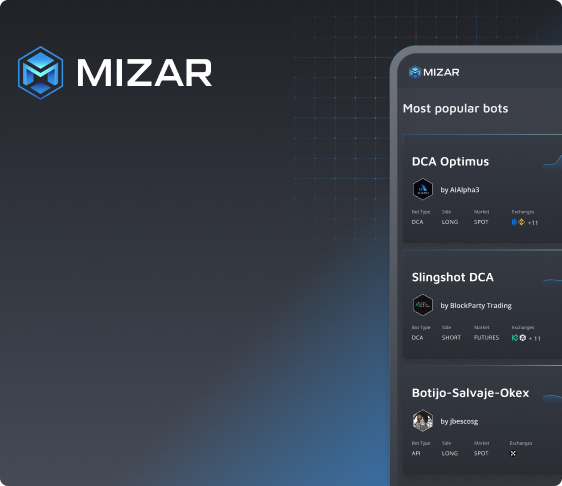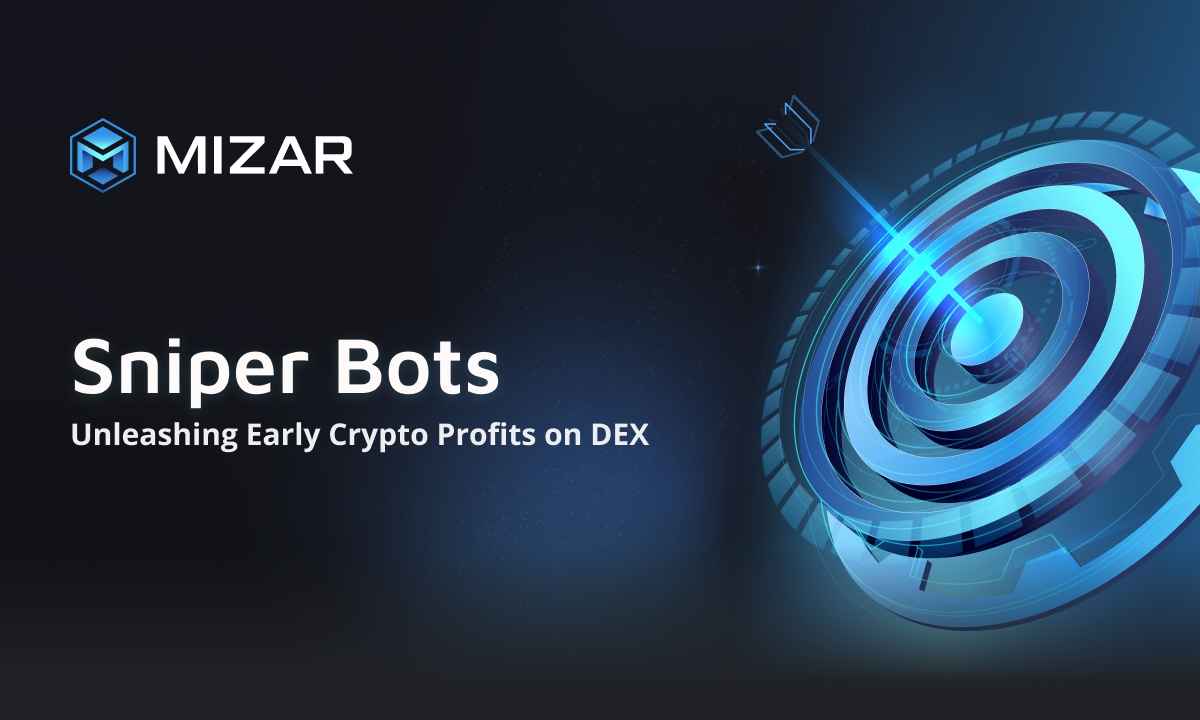US Crypto Investor? Everything You Need to Know About Cryptocurrency Taxes

Cryptocurrencies have disrupted traditional finance, introducing a new age of decentralized currency. With the adoption of cryptocurrencies such as Bitcoin and Ethereum, a new set of challenges has emerged, particularly in the area of taxation. In this article, we'll delve deep into what every US crypto investor needs to know about cryptocurrency taxes.
As cryptocurrencies continue to gain traction in mainstream financial systems, it's essential for investors to be well-versed in how these digital assets are treated from a taxation perspective. The IRS has been progressively updating its guidelines, and if you’re involved in crypto trading, it’s crucial to understand your tax obligations. You need to pay taxes when trading crypto with DCA bots, copy trading & more.
How the IRS Views Cryptocurrency
Treated as Property: Cryptocurrencies are considered property for tax purposes. This means that capital gains and losses rules apply when you dispose of your cryptocurrency.
Applicable to All Cryptocurrencies: This ruling isn't exclusive to just Bitcoin or Ethereum. It applies to all cryptocurrencies, including stablecoins and NFTs (Non-fungible Tokens). While stablecoins are pegged to a stable asset, like the US dollar, and might seem more like "real money," they are still classified under the cryptocurrency umbrella for tax purposes. Similarly, NFTs, which represent unique digital items on the blockchain, also fall under this classification.
Some NFTs can be considered collectibles now on latest guidance and subject to higher collectibles CGT tax rate of 28%
Types of Taxable Crypto Events
Selling Cryptocurrency: When you sell your cryptocurrency like Bitcoin for fiat currency (like USD) or trade it on an exchange like Binance for another cryptocurrency, that's a taxable event.
Spending Cryptocurrency: Using Ethereum to buy goods or services? That's another taxable event.
Mining and Rewards: Income generated from mining Bitcoin is treated as taxable income. Any appreciation in value from the time of acquisition to the time of sale is considered a capital gain or loss.
Staking: New guidance on staking makes it clear that staking is taxable income when received.
DeFi (Decentralized Finance): Rewards from staking and yield farming can be taxed. These may be considered as either or both capital gains tax and income tax, depending on the protocol and the nature of the transaction.
NFTs (Non-fungible Tokens): The sale or trade of NFT artworks, such as Beeple's "Everydays: The First 5000 Days," which sold for $69 million, has tax implications. It's crucial to understand the gains you've made from such high-profile transactions and report them accurately. In general, when buying, selling, and trading NFTs, investors are dealing with capital gains taxt. However some NFTs may be deemed collectibles,and collectibles are subject to the higher CGT tax rate of 28%
Does the IRS Know About Your Crypto?
If you've been questioning the reach of the IRS concerning your crypto dealings, you should know that their reach is vast.
KYC Protocols: All notable crypto exchanges have introduced KYC (Know Your Customer) verifications, ensuring all users are identifiable.
Transaction Histories: Exchanges keep meticulous records of transactions, especially when fiat money is converted to crypto.
Withdrawal Details: Most exchanges also log the crypto addresses where users send their assets. These addresses can hint at the possible ownership of certain custodial wallets.
Tax Reporting by Exchanges: Many crypto exchanges have started sharing 1099 forms with both the IRS and users, disclosing specific transaction details. Note that a new 1099 form (1099 DA) is in the works with the IRS, currently.
Legal Pursuits: The IRS means business. They've successfully litigated against industry giants like Coinbase, Kraken, and Poloniex, obliging them to disclose user data for taxation
How Much Tax You'll Pay
Navigating the labyrinth of cryptocurrency taxation can seem challenging. However, it's crucial to understand the tax implications of your crypto transactions:
Short-Term Capital Gains and Crypto Income: If you've sold or traded cryptocurrency within a year of acquiring it, any profit will be considered short-term capital gains. These gains can be taxed up to 37%, depending on your income level.
Long-Term Capital Gains: For assets held over a year, the tax rate varies between 0% and 20%. The rate you pay is contingent on your taxable income and filing status.
NFTs deemed to be Collectibles: Non-fungible tokens (NFTs) that are classified as collectibles could be subject to a 28% tax rate.
Determinants of Tax Amount: Your taxable crypto amount is influenced by several factors: your annual income, the nature of the transaction, and the holding duration of your crypto asset.
When You Won't Pay Tax
It's a misconception that every crypto transaction is taxable. Some activities with cryptocurrencies are non-taxable:
Purchasing Cryptocurrency: Simply buying crypto with traditional money (fiat) is not a taxable event.
HODLing: If you're a long-term believer and just holding onto your cryptocurrency, there's no tax just for holding (or "HODLing").
Crypto Transfers: Moving your crypto between your personal wallets is non-taxable. It's a mere change of address, not a sale.
Gifting Cryptocurrency: You can gift cryptocurrency tax-free, but there's a caveat. Ensure you haven't surpassed the lifetime gift limit. You'll have additional forms to fill in if you gift more than the annual allowance
Charitable Donations: Generously donating crypto to charities is not only a noble act but also offers tax benefits. For substantial donations exceeding $5,000, you might need an official appraisal for tax deductions. Registered charitable organizations is a key distinction here. Not all charities or causes qualify for deductions.
NFT Creations: Designing and minting an NFT isn't a taxable event. But, selling or auctioning it is.
Reporting and Record-Keeping
Maintaining thorough records is the cornerstone of accurate crypto tax reporting. Here are the best practices:
Document Everything: Ensure you're keeping track of all your transactions. This includes dates, values in USD at the time of the transaction, amounts, and the involved parties.
Use Specialized Software: There are many crypto tax software options available on the market today. In most cases, these platforms integrate with major exchanges, automatically import your trades, and help you compute capital gains or losses. They can make tax time less stressful by streamlining much of the calculation and documentation process.
Seek Professional Guidance: The world of crypto taxation can be complex. Consider seeking advice from a tax professional familiar with cryptocurrency.
Get Informed About Tax Loss Harvesting Strategies
Tax loss harvesting is a strategy employed by investors to reduce potential capital gains taxes. It involves selling a security that has experienced a loss and then buying a correlated asset, allowing the investor to maintain a similar position while recognizing a loss. In the world of cryptocurrency:
You might consider selling a cryptocurrency that's in a loss position and buying a similar one to maintain your portfolio's overall stance.
Using this strategy, you can offset up to $3,000 against ordinary income only..
Always ensure that you're adhering to the IRS's "wash sale" rules. There's also the economic substance test to consider. While these rules don't explicitly apply to crypto yet, following them is a good conservative approach.
Conclusion
Cryptocurrency offers a revolutionary approach to finance, but with it comes a new set of challenges in taxation. By understanding your obligations and staying updated on IRS regulations, you can ensure you're meeting your tax requirements and avoiding potential pitfalls. As the crypto landscape continues to shift, always be proactive about seeking out the most current information and consider consulting with a tax professional to navigate the complexities of cryptocurrency taxes.



